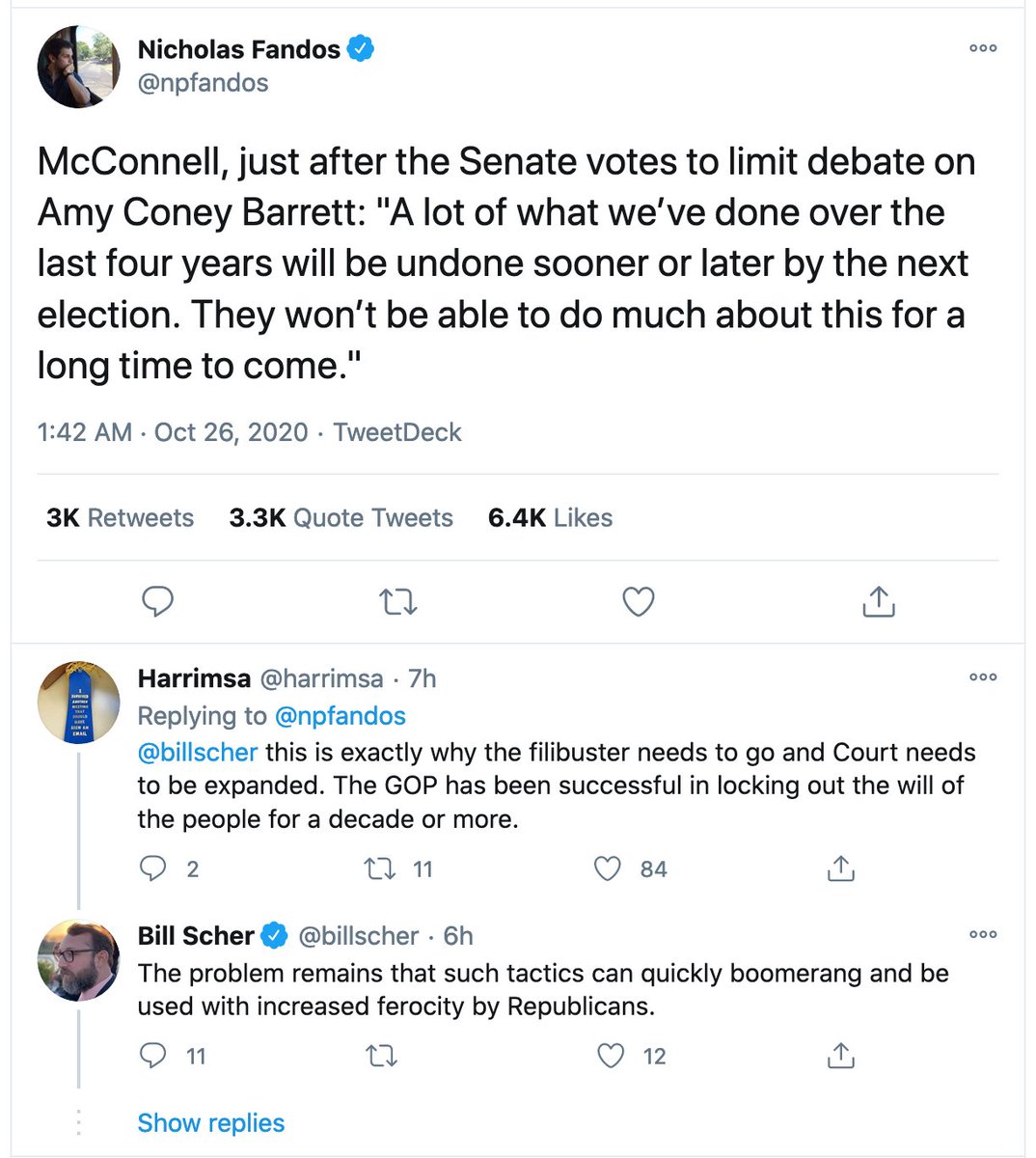
Trump achieved escape velocity from the gravity of American political norms. He did it by 'not being a politician'. "Bullworth" meets "Bob Roberts" meets "Dave" meets "Being There". Even after 4 years he knows almost nothing about doing his job, and he cares even less. 1/
https://twitter.com/mattyglesias/status/1320136932446375936
If 10% - or 99% - more normal meant becoming a 'normal politician', that would just cause his orbit to decay. He would suffer reentry to liability for thousands (!!) of things he's done, which no other politician could get away with. So, no, that wouldn't work. 2/
Trump is, to sensible folks, a symbol of noxious privilege, corruption and betrayal of American ideals. To his base, however, he is 'the fool triumphant' (to use a screenwriting story term. Screencap from "Save The Cat".) So: less foolishness would uncut base appeal. 3/ 

In narrative terms Trump in fact embodies a twist on the familiar Fool Triumphant (FT) tale. (It isn't totally new. It's in Melville's "The Confidence Man". But that won't fit on Twitter.) The twist is: what if you had a Bullworth-Dave-Being-There guy? 4/
AND he fools upstairs all the way to the White House (so far, so classic FT.) BUT it turns out he's a con man, not an authentic Simple Soul. (At this point Trump's base loses the thread of the film totally. But we'll keep watching.) 5/
But the twist-on-the-twist is: at this point the Wicked Grand Vizier (McConnell) thinks he can work with this. For his purposes, a guy who can pull off the long con of pretending to be the FT is perfect. That guy works the rubes up front, while the Vizier machinates backstage. 6/
But the problem is that Trump is that most complicatedly simple and American thing of all: an authentic Bad Fool Triumphant (BFT) hidden inside a fake Good Fool Triumphant (GFT). (Again, see Herman Melville's "The Confidence Man", passim, for exemplary prior art.) 7/
The plot of the regular vanilla GFT tale is that it's the Simple Soul's unalloyed quality of Goodness that somehow allows him to prevail. His weakness is his strength insofar as omnicluelessness conveys de facto immunity against corrupting complexity all around. 8/
Normal people get, by proxy contact with the GFT, some saving grace sense of what it would be to embrace Simple Goodness, thereby slipping Puzzle Palace complexity of their quotidian, morally-fraught roles. Hence evergreen narrative appeal of GFT-goes-to-the-White-House. 9/
Those who are touched by the GFT are mostly good already - but too complexified in that for their own good. The GFT naively displays how to straighten the lines. That's the fantasy. (Cf. William Empson on mock-pastoral. The GFT is in fact a sub-genre of literary pastoral.)
Trump is no political GFT, nor however is he the shrewd operator you would expect, ceteris paribus, if you peel a fake, political GFT - i.e. someone who deliberately masks as a GFT, in hopes of hereby 'stumbling' into exclusive access to all the levers of real political power. 9/
Trump, having conned his way into the White House, under cover of appearing to be a GFT, does not simply unmask, backstage, as garden variety shrewd political operator. Because his con is itself another false front - a mask-behind-the-mask. He IS a Simple Soul, but a Bad one. 10/
He's just a child in the sense that he's narcissistic and appetitive, ego and impulse-driven. Rather than being innately attuned to a simpler, purer Good than politics usually admits, he is innately attuned to a simpler, purer Bad than politics usually admits. 11/
Having fallen up into the White House, by dint of being an idiot, Trump proceeds to fall up through the GOP, which has long been a force for Bad - but complexly so. Just as the GFT in the White House traditionally teaches good people that there are simpler ways to be good. 12/
So the BFT in the GOP, Trump, teaches traditionally bad people that there are simpler ways to be bad. This complicates Mitch McConnell's life, because he wants to be bad in a more complicated way. He craves working those levers of power expertly, not like an idiot. 13/
It's not as simple as I make it seem! Trump isn't just the Fool Triumphant, to his base. He's also, by turns, "Dude With A Problem" (Flight 93 essay) and "Institutionalized" (the Deep State). Most politicians, because they are 'normal', can't maintain pure narrative appeal. 14/
Trump, by never caring about actual politics, has never ceased to appeal to his base at the level of Simple Story. But I've said enough. 15/
• • •
Missing some Tweet in this thread? You can try to
force a refresh



